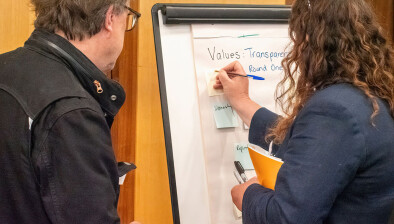Lawyers showing ‘lack of willingness’ to resolve consumer complaints informally

Dr Brian J. Doherty
Lawyers are showing a “lack of willingness” to engage with the informal resolution or mediation process following consumer complaints, the Legal Services Regulatory Authority (LSRA) has said.
The legal watchdog’s latest complaints report marks the first time that it has reported on complaints that have been determined to be admissible and where the LSRA has attempted to informally resolve or to mediate the issue of complaint.
In one case which went on to a determination, a lawyer was ordered to pay compensation of just under €1,000 to a complainant who had received “inadequate” services.
Writing in the foreword, LSRA CEO Dr Brian J. Doherty said: “A trend that is emerging from these first cases is the marked willingness of complainants to engage fully with the informal resolution or mediation process but a lack of willingness in some cases on the part of the legal practitioners.
“An important message for legal practitioners is that where the LSRA is of the view that an agreement to resolve a complaint is unlikely, including where the legal practitioner fails to engage with the process, the LSRA can, following formal notification to the parties, move to determining the complaint.
“Indeed, we are reporting for the first time on determinations in such cases that have been made by the LSRA’s complaints and resolution officers. These cases relate to allegations of excessive costs and inadequate legal services.”
In the reporting period between 7 September 2020 and 31 March 2021, the LSRA received 1,077 queries, of which 805 met the criteria to be categorised as complaints – 783 relating to solicitors and 22 relating to barristers.
A total of 294 complaints were closed in the reporting period. Just over a third (35 per cent) were deemed to be inadmissible and closed, while a slim majority (51 per cent) were either withdrawn or resolved before admissibility could be judged.
Of the remaining complaints, four were resolved in the informal resolution process and two were resolved between the parties after they had been referred to the LSRA’s complaints committee.
A total of six complaints were determined by the LSRA in the reporting period and directions were issued to the legal practitioners in five of those cases. In two cases, one of the parties requested a review, which is pending.









